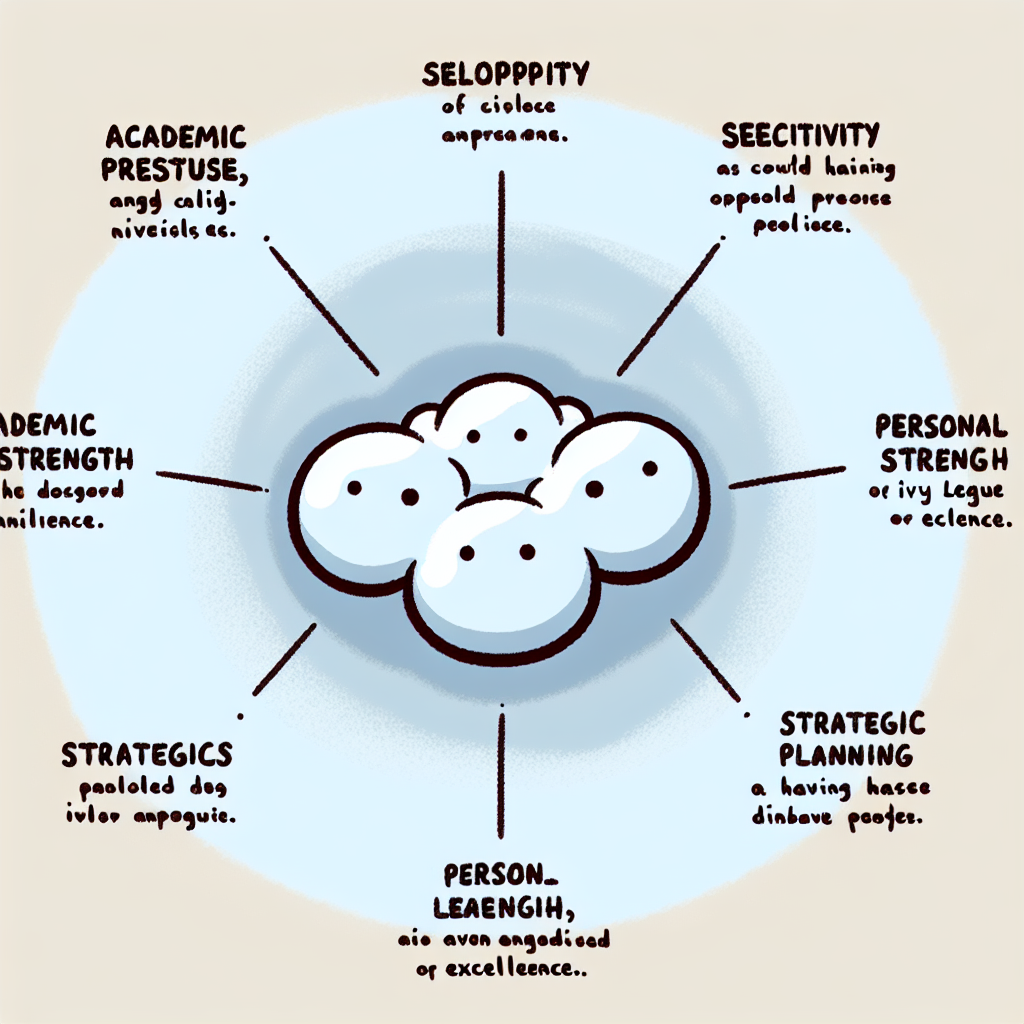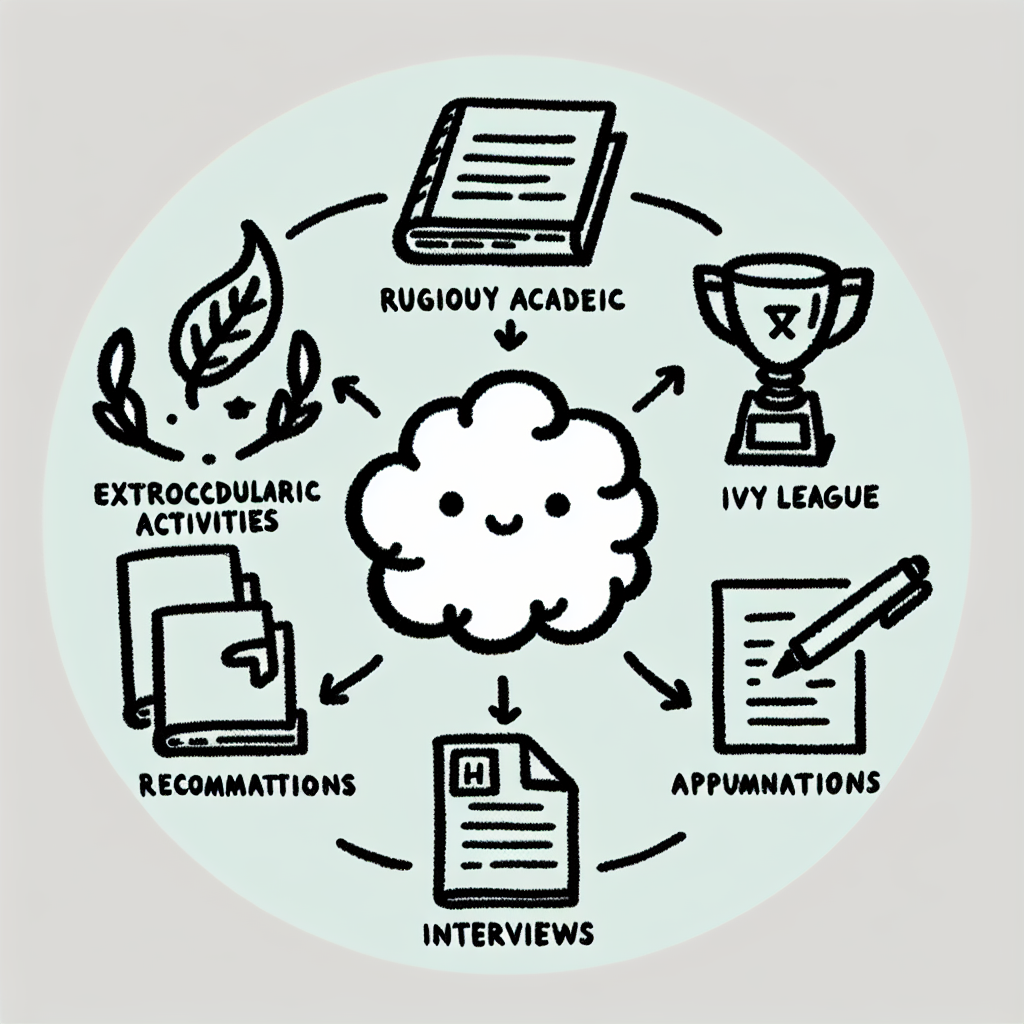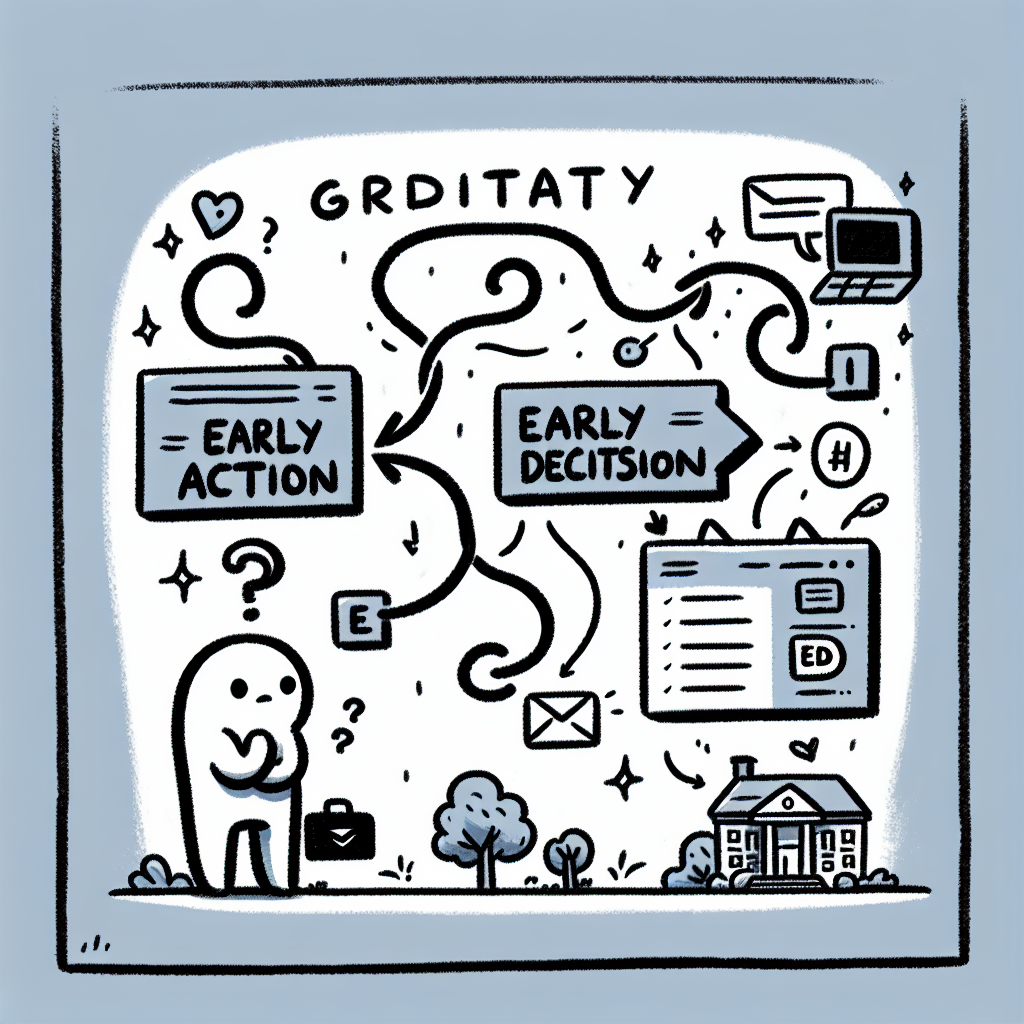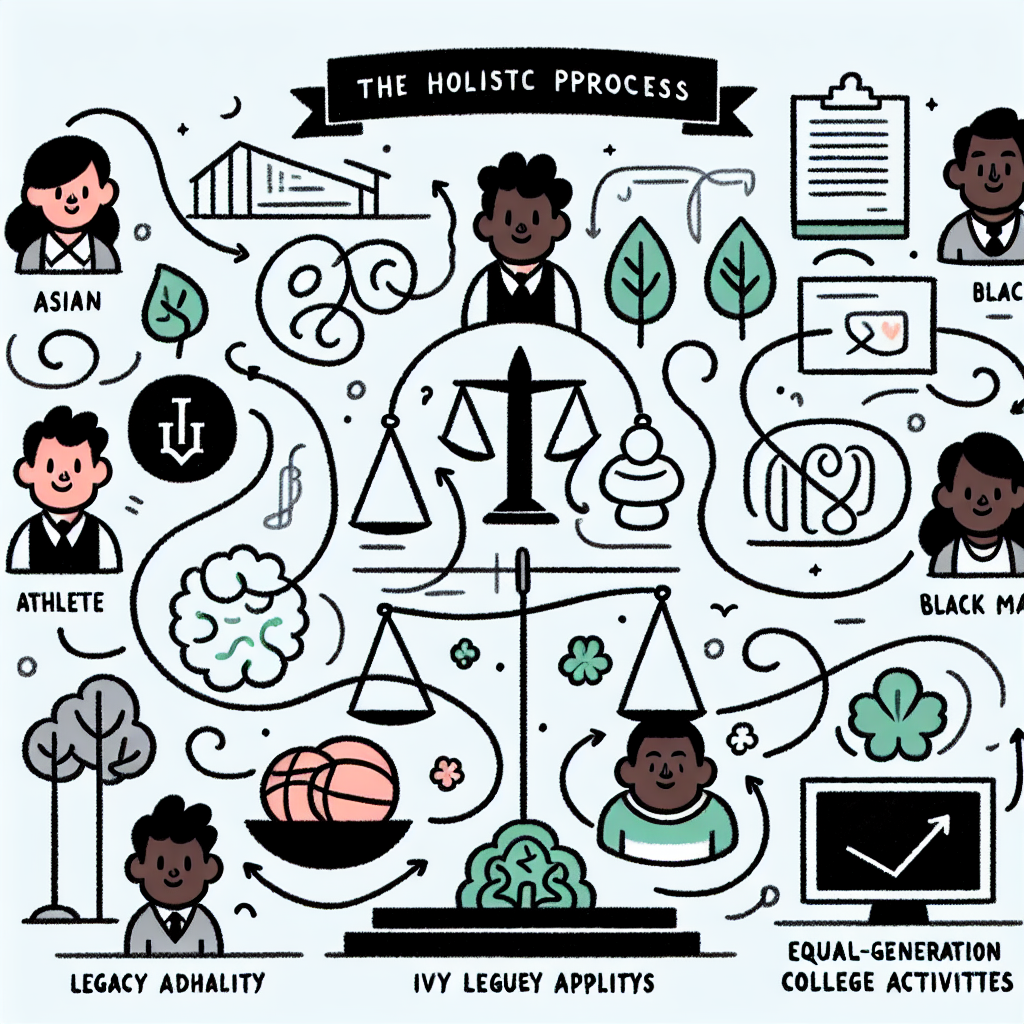Introduction
Applying to Ivy League colleges is a goal for many high-achieving students due to the prestige, academic rigor, and networking opportunities these institutions offer. The Ivy League is an athletic conference composed of eight private colleges in the Northeastern United States: Harvard, Yale, Princeton, Columbia, Brown, Dartmouth, the University of Pennsylvania, and Cornell. Beyond athletics, these schools are widely recognized for their academic excellence, selective admissions, and long-standing histories.
Ivy League schools are highly competitive, often admitting fewer than 10% of applicants. The competition stems from the schools' limited number of spots, high standards for academic and extracurricular achievement, and their global reputations. Applicants not only need top grades and test scores but also compelling personal stories, strong letters of recommendation, and evidence of leadership and initiative.
Given the intense competition, creating a strategic application plan is essential when applying to Ivy League colleges. This involves understanding each school's unique characteristics, aligning personal strengths with institutional values, and carefully managing deadlines and application materials. A thoughtful approach can significantly improve a candidate's chances in this highly selective process.

Understanding the Landscape of Ivy League Admissions
Acceptance Rates and Selectivity
Applying to Ivy League colleges is highly competitive due to their ultra-low acceptance rates. For example, Harvard University has an overall acceptance rate of just 3%, and its Early Action program admits only 7.6% of applicants (usnews.com). This level of selectivity is common across the Ivy League, with six of its eight institutions ranking among the 15 most selective colleges in the United States (usnews.com).
Applicants must also understand the difference between Early Decision and Regular Decision strategies. Early Decision can offer a slight edge in acceptance rates but requires a binding commitment, whereas Regular Decision provides more flexibility but is often more competitive.
Standardized Test Scores
Successful applicants to Ivy League schools typically present top-tier standardized test scores. For instance, admitted students to Harvard generally score between 1500–1580 on the SAT or 34–36 on the ACT (usnews.com).
With many Ivy League schools adopting test-optional policies, the role of standardized tests in admissions has evolved. However, strong scores can still enhance an application. Additionally, high AP or IB scores and subject-specific test results can support a student's academic profile where applicable.
Application Volume and Its Implications
The sheer number of students applying to Ivy League colleges adds another layer of complexity. For example, Harvard received over 40,000 applications for Fall 2020 (usnews.com). While this number is high, it still falls short of some large public universities, which may receive more than 80,000 applications annually.
This high volume means applicants must find ways to stand out—not just academically, but also through unique experiences, compelling personal statements, and strong recommendations.
Academic Excellence and Reputation
Ivy League institutions are consistently ranked among the top U.S. colleges. For example, Yale University holds the #5 spot nationally (usnews.com).
Their academic reputation contributes significantly to opportunities after graduation, including access to competitive graduate programs and high-profile career paths. This prestige is a key reason why many students focus on applying to Ivy League colleges.

Crafting a Competitive Ivy League Application
Academic Profile
A strong academic profile is the foundation of any successful attempt at applying to Ivy League colleges. Applicants are generally expected to have an unweighted GPA of 3.9 or higher, reflecting consistent excellence across all subjects. However, GPA alone isn't enough—the rigor of the high school curriculum plays a crucial role. Admissions officers look favorably on students who challenge themselves with Advanced Placement (AP), International Baccalaureate (IB), or Honors courses, particularly in core academic areas. Class rank can also offer context, especially if the student is in the top 5% of their graduating class. However, admissions teams also consider the competitiveness of the high school, recognizing that not all schools offer the same opportunities or grading standards.
Extracurricular Activities
When applying to Ivy League colleges, extracurricular activities should demonstrate depth, leadership, and impact. While some applicants present as well-rounded, many successful candidates focus on building a “spike”—a deep, demonstrated expertise or passion in a specific area. Leadership roles, such as being the captain of a team or founder of a club, show initiative and accountability. Long-term commitment to activities signals passion and resilience. Recognition at the national or international level, such as Intel Science and Engineering Fair (ISEF), Regeneron, or academic Olympiads, can significantly strengthen an application by validating a student's achievements at the highest level.
Personal Statement and Supplemental Essays
Essays are a critical component when applying to Ivy League colleges, providing a platform for students to showcase their voice, values, and intellectual curiosity. The personal statement should feature authentic storytelling that reflects the applicant’s unique experiences and growth. Supplemental essays, particularly the "Why this school?" prompt, must be answered with specificity—citing unique programs, faculty, or research opportunities that align with the applicant’s goals. These essays should highlight how the student thinks, what they care about, and how they plan to contribute to the campus community.
Letters of Recommendation
Strong letters of recommendation can provide insight into a student's character and academic potential. It's important to choose recommenders—ideally core academic teachers from junior or senior year—who know the student well and can provide specific examples of their strengths. These letters should highlight both classroom performance and personal attributes like leadership, curiosity, or resilience. To ensure strong endorsements, students should build relationships with their teachers over time and provide them with context, such as a résumé or a summary of accomplishments.
Interviews (Alumni or Admissions)
Interviews are often part of the Ivy League admissions process and can help add depth to an application. These are typically conducted by alumni or admissions officers and are usually conversational. Applicants should prepare by researching the school and practicing responses to common questions like "Tell me about yourself," or "Why do you want to attend this college?" The goal is to communicate enthusiasm, clarity of purpose, and personality. A thoughtful, genuine conversation can leave a positive impression and reinforce the applicant’s fit with the institution.

Strategic Elements of Applying
Early Action vs. Early Decision
When applying to Ivy League colleges, choosing between Early Action (EA) and Early Decision (ED) can be a critical strategic move. Early Decision is binding, meaning students must attend if accepted, while Early Action is non-binding and allows more flexibility. A key advantage of applying early is the statistically higher acceptance rates. For example, Harvard’s early acceptance rate is significantly higher than its regular decision rate, according to usnews.com.
Some Ivy League schools, like Harvard, offer Restrictive Early Action (REA), which limits applicants from applying early to other private institutions but still does not require a commitment to attend. Understanding the specific policies of each school can help applicants decide the best time and method to apply.
Demonstrated Interest (Where Applicable)
While not all Ivy League schools consider demonstrated interest, engaging with a school can be beneficial when it is tracked. Activities such as campus visits, attending virtual information sessions, and thoughtful email correspondence with admissions offices can signal a genuine desire to attend. Among the Ivies, schools like Cornell and the University of Pennsylvania are known to factor in demonstrated interest.
Financial Aid and Scholarships
Applying to Ivy League colleges includes understanding their financial aid policies. All eight Ivy League schools offer need-blind admissions for U.S. applicants, meaning financial need does not affect admission decisions. They also commit to meeting 100% of demonstrated financial need, often through generous aid packages.
Applicants should utilize net price calculators available on each school’s website to estimate their expected contribution. Additionally, families can submit financial aid appeals if their circumstances change. While Ivy League schools do not offer merit-based scholarships, students can apply for outside scholarships. However, each school has different policies on how these external funds impact institutional aid, known as stacking policies.
Common Application Tactics
Managing the logistics of applying to Ivy League colleges requires attention to detail. Each school has specific deadlines, supplemental essay prompts, and application components. Creating a centralized calendar helps keep track of these requirements.
A strong application tells a cohesive story, aligning academic interests, extracurricular involvement, and personal narrative. It is also crucial to tailor each application to reflect the values and culture of the individual institution. Researching a school’s mission statement, academic programs, and campus culture can guide applicants in customizing their responses effectively.

Hidden Factors in Ivy League Admissions
Institutional Priorities
When applying to Ivy League colleges, applicants should understand that admissions decisions are not determined by academic records alone. Institutional priorities play a significant role. Legacy status—being the child of an alumnus—can provide a notable advantage. Recruited athletes also receive special consideration, as athletic programs are a key part of campus life. First-generation college applicants may be prioritized to promote social mobility and diversity.
Colleges also consider geographic and demographic diversity. Ivy League schools aim for a student body that represents a wide range of backgrounds and experiences. This can mean favoring applicants from underrepresented states or communities to broaden the institution’s reach.
Institutional fit and mission alignment are also critical. Admissions offices look for students whose values, goals, and activities align with the college’s mission. For instance, a university with a strong focus on public service might prioritize applicants with a demonstrated commitment to community engagement.
Holistic Review Process
The Ivy League uses a holistic admissions process, meaning they evaluate each applicant as a whole person, not just a set of numbers. Academic achievements are important, but they are considered alongside extracurricular involvement, leadership, essays, and letters of recommendation.
Context matters. Admissions officers review applications in light of the student’s school profile, available opportunities, and any personal or family challenges. For example, excelling at a high school with limited Advanced Placement courses may carry as much weight as performing well at a school with many options.
In this process, Ivy League schools strive to balance academic strength with character and potential. They seek students who not only succeed in the classroom but also demonstrate resilience, curiosity, and the capacity to contribute meaningfully to the campus community.

Navigating Rejection and Exploring Alternatives
Understanding the Odds
When applying to Ivy League colleges, it's important to recognize just how competitive the process is. Acceptance rates are frequently below 5%, making these schools some of the most selective in the world (usnews.com). Even applicants with outstanding academic records, test scores, and extracurricular achievements can receive rejection letters. This outcome often reflects factors beyond individual merit, such as institutional priorities, limited space, and holistic admissions policies.
Building a Balanced College List
Given the steep odds, it's wise to develop a balanced college list when applying to Ivy League colleges. This list should include a mix of reach, target, and safety schools. Target and safety schools should still offer strong academic programs aligned with your interests and goals. Focusing solely on prestige can limit opportunities—many non-Ivy institutions provide excellent education, vibrant campus life, and pathways to successful careers.
Gap Years and Reapplication
Rejection doesn't mean the end of your college aspirations. Some students choose to take a gap year to gain work experience, travel, volunteer, or pursue other meaningful activities. A well-spent gap year can enhance your perspective and strengthen your application if you decide to reapply. When reapplying, it’s essential to demonstrate growth: improved test scores, more refined essays, additional accomplishments, or a clearer sense of direction can all contribute to a stronger profile.
Navigating rejection is a part of applying to Ivy League colleges, but with planning and resilience, there are many paths to academic and personal success.

Conclusion
Applying to Ivy League colleges is a highly competitive process, but it’s not beyond reach. With thousands of applicants vying for limited spots, success demands more than just good grades. Academic excellence is essential, but so is the ability to tell a compelling personal story and to plan each step of the application strategically.
To maximize your chances, use data to understand what each school values, take advantage of available resources like college counselors and admissions guides, and invest time in self-reflection to articulate your goals and strengths. By combining these elements, applicants can present themselves as thoughtful, prepared, and unique candidates in the eyes of Ivy League admissions committees.

Additional Resources
For students applying to Ivy League colleges, access to accurate and up-to-date information is essential. The following resources provide valuable data and insights to help guide your application process:
- Harvard Admissions Data: Offers detailed statistics on acceptance rates, average test scores, and other key metrics for applicants considering Harvard.
- Colleges with the Lowest Acceptance Rates: This list shows how Ivy League schools compare to other selective institutions in terms of competitiveness.
- Colleges with the Most Applications: Understand how application volume affects selectivity and how Ivy League colleges rank in terms of demand.
- Yale University Academic Ranking: Provides academic performance indicators and national rankings that can inform your evaluation of Yale and its peers.
These resources offer a well-rounded perspective for anyone applying to Ivy League colleges, from understanding competitiveness to academic standing.







.png)






